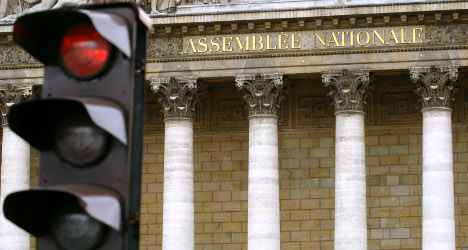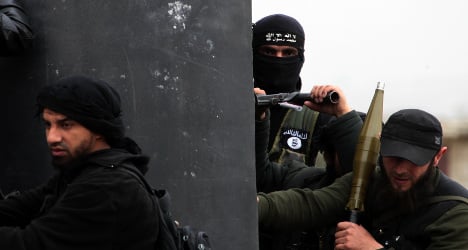Hollande has repeatedly stated in recent weeks his desire and willingness to “punish” the Syrian regime, which the government believes is responsible for a deadly chemical weapons attack in Damascus last month.
But with the UK pulling out of any military offensive after its parliament voted against taking action, and US president Barack Obama appearing to waver in his position, Hollande is looking increasingly isolated.
An opinion poll last week suggested that a majority of the French population were against France deploying its armed forces in Syria.
Now the country’s politicians from all parties are insisting the president must follow the lead of Obama and the UK Prime Minister David Cameron, by putting the question of military intervention to a parliamentary vote.
“Any intervention not justified by a parliamentary vote will no doubt appear in the eyes of the population as a decision that has been forced through and will lose all popular support,” warned MP Patrick Mennucci, a member of Hollande’s own Socialist party.
Reflecting the discord in the ranks of Hollande’s party, Pascal Cherki, Socialist mayor of the 14th arrondissement in Paris, tweeted that Hollande had to meet “two conditions for military intervention in Syria: irrefutable evidence from the UN inspectors and a vote by parliament.”
France’s main opposition UMP party have already warned against taking action in Syria with former PM Francois Fillon saying the region was a "powderkeg". On Monday a number of MPs from the UMP vowed not to take part in Wednesday's planned parliamentary debate on the issue unless it was followed by a vote.
"The only MPs who will not decide on the deployment of armed forces in Syria will be the French parlimentarians," the group said in a statement.
Jean-Vincent Placé, head of the green EELV group in the French Senate wants a vote, to help strengthen the position of the president.
Never one to remain quiet on a key issue, the far left leader Jean-Luc Mélenchon said France must follow the lead of its allies when it comes to Syria.
“The British have voted, the Germans are going to vote, the Americans are going to vote, will we be the only country where we don’t vote and where one person decides everything?,” said Mélenchon of the Parti de Gauche (Left Party).
“This country is a Republic. Mr Hollande is not a monarch, who decides whether France goes to war. War or peace, it is parliament who must decide,” he added.
However, under the French constitution the president is under no obligation to seek parliamentary approval before launching strikes.
He is simply required to alert lawmakers three days before any military action takes place. Only if a conflict continues for four months will Hollande be forced, under the rules of the constitution, to get the green light from parliament for action to continue.
Up until now, however, Hollande has shown no signs of wavering on the issue. The question of how to react to the crisis in Syria will be put before a parliamentary debate on Wednesday, but will not include a crucial vote.
On Monday, the Prime Minister Jean-Marc Ayrault will receive some of the main figures in parliament to inform them of the latest developments in the war torn country and a political source told AFP that lawmakers would be shown proof that the Syrian regime was behind the chemical weapons attack, in an apparent attempt to appease those who have doubts.
"It will be a set of evidence of different kinds that will allow the regime to be clearly identified as responsible for the August 21st chemical attack," the source told AFP.
Ministers in the French government defended the president’s stance on Monday.
“Before going to war, no nation asks for permission. Otherwise what would that mean? Will we need to ask permission of the country we are going to attack?” said Minister for Labour Michel Sapin.
Elisabeth Guigou, head of the parliament's foreign affairs committee said: "In a complicated situation like this, we need to stick to principles, in other words the constitution, which does not oblige the president to hold a vote, nor even a debate," Guigou, told France Info radio.
"I don't see that holding a vote would make any sense politically," she said.
With Hollande resisting calls for a vote the French press have been quick to reming the president that before the Irak war in 2003 he himself had demanded that MPs be given a chance to vote on the question of whether to strike against Saddam Hussein.
Hollande, however, may be spared making the tough and unpopular decision to launch strikes by his counterpart in the United States.
If Congress votes no and Obama decides against military intervention, France is unlikely to act without at least one ally, as acknowledged by the country’s Interior Minister Manuel Valls on Sunday.
"France cannot go it alone," Valls told Europe 1 radio. "We need a coalition."



 Please whitelist us to continue reading.
Please whitelist us to continue reading.
Member comments